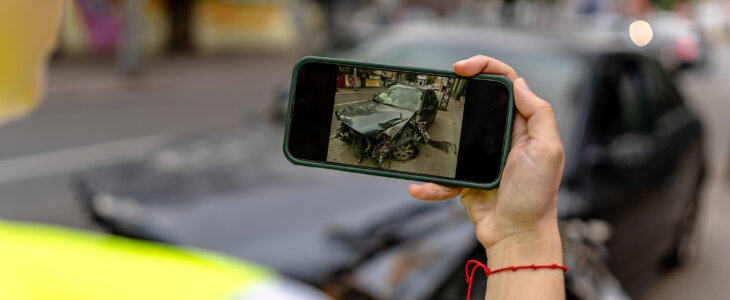Social media has become an integral part of modern life, allowing people to instantly share experiences and connect with others. However, while posting about daily life events might seem harmless, it can have unintended consequences, especially if you’re involved in a car accident. In personal injury claims, social media activity can influence the outcome of your case, often in surprising and negative ways.
How Social Media Can Be Used as Evidence
When you’re involved in a car accident and pursuing a personal injury claim, anything you post on social media could be used as evidence. Insurance companies and defense attorneys are known to monitor claimants’ online activity. They may use your posts to argue against the severity of your injuries or to dispute your version of events.
For example:
- Posting a photo at a family gathering or a vacation could be interpreted as proof that your injuries aren’t as serious as you claim, even if the post doesn’t reflect your physical condition.
- A status update saying you’re “feeling better” could be taken out of context and used to challenge your need for further medical treatment or compensation.
- Sharing details about the accident or making statements about fault could undermine your legal position.
In essence, social media creates a permanent record, and once something is posted, it’s difficult to control how it may be interpreted or used. That’s why it’s best to remain cautious about what you share online while your case is active.
Potential Pitfalls of Social Media Posts During a Car Accident Case
Social media posts can be tricky because even innocent updates can be misinterpreted or used against you. Here are a few specific examples of how social media can backfire:
- Activity posts: If you post about physical activities like walking your dog, going for a hike, or even doing household chores, these could be used as evidence that you’re more capable than your claim suggests.
- Location check-ins: Checking in at a location, primarily a recreational or entertainment venue, can lead to assumptions that you’re not as injured as you claim.
- Comments from friends or family: Even well-meaning comments on your posts, such as “You look great!” or “Glad to see you’re back to normal!” can be used against you.
The lesson here is simple: if there’s any doubt about whether a post could harm your case, don’t share it.
Privacy Settings Aren’t Foolproof
Many people believe that setting their social media profiles to private will protect them from prying eyes during a legal case. Unfortunately, this isn’t always true. Privacy settings can provide some control over who views your content, but they aren’t foolproof.
Opposing attorneys can request your social media information through legal processes like subpoenas. Even if your posts are set to private, they could still become accessible in court. Also, friends or followers may unintentionally share your posts, widening your audience beyond your control.
Instead of relying on privacy settings, it’s better to avoid posting about the accident, your injuries, or any aspect of your recovery altogether.
Rules for Social Media Use During a Car Accident Case
To protect your injury claim, be mindful of your social media use while your case is ongoing. Here are some best practices to follow:
- Refrain from posting about the accident–Do not share any details about it, including where and how it happened, who was involved, or how you feel about it.
- Avoid posting updates about your injuries or recovery–These posts can be easily misinterpreted or used against you in court, even if you simply share your progress.
- Turn off location tags–Disabling location features can prevent accidental check-ins or location sharing, which could be used as evidence.
- Ask friends and family not to tag you–It’s wise to let your loved ones know that you prefer not to be tagged in photos or updates while your case is ongoing.
- Minimize social media activity–The safest approach is to limit your social media presence entirely while your case is active. Less activity means less risk.
Following these guidelines will reduce the chances of social media affecting your personal injury claim.
Call a Personal Injury Attorney to Avoid Social Media Risks
Social media is a powerful tool, but during a car accident case, it can quickly become a liability. Anything you post could be used as evidence, often in ways you might not expect. By being mindful of your online activity and following the advice of your attorney, you can help protect your personal injury claim and secure the compensation you deserve.
At Michael Kawi Law, we understand how insurance companies and defense attorneys may try to use social media against you. We will guide you on what steps to take to protect your claim and ensure that no post or update jeopardizes your right to compensation. If you’ve been injured in a car accident, contact us today for a free case evaluation, and let us help you protect your case from social media exposure.

